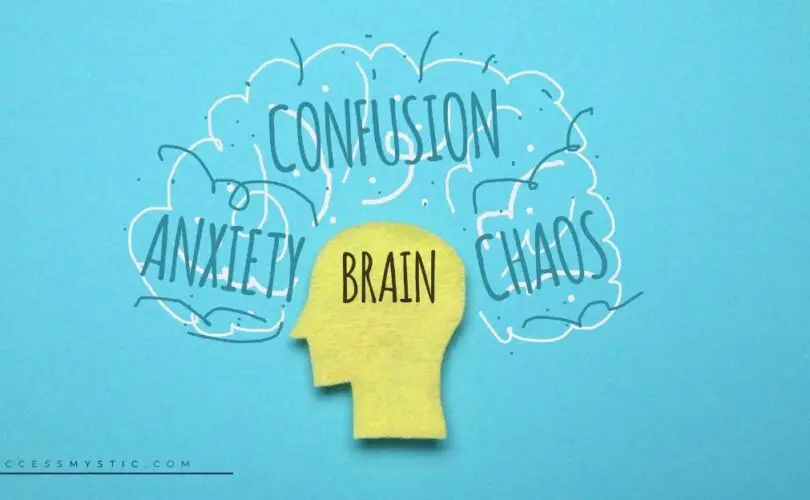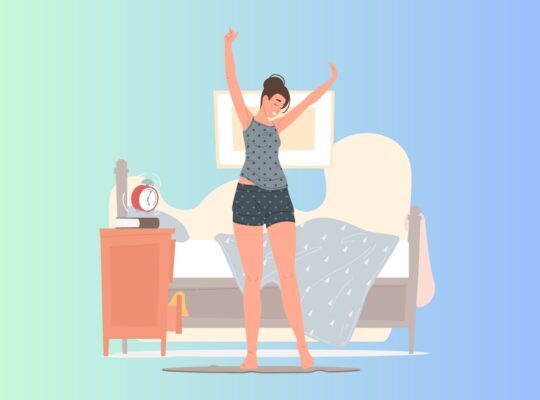Emotional Clutter 101
Cleaning our closet or organizing our pantry so that it is free of clutter comes with ease. We can open any of these doors, envision what we need to restore a bit of order and boost our functional efficiencies and make the adjustments with very little thought. When it comes to the emotional clutter that is occupying our brains, we are not always so adept at managing the emotional clutter.
Emotional clutter can have a detrimental effect on your ability to lead an optimal lifestyle. Fears, worries, and unresolved issues all have a crazy way of rising to the surface and cluttering your mind. Old decisions, bad relationships, and painful events can all be mentally draining.
When you can recognize the drain, you have to take steps to hit the reset button and clear the clutter. Here are a few tips to help you overcome this barrier of emotions.
How to Clear Emotional Clutter
There are a few ways to clear your mind and spirit of emotional clutter. These steps may seem daunting at first, but if tackled one by one, you will be able to experience the reward.
1| Confront Your Demons
One of the first things you should do is to confront your demons. To rid your mind of the emotional clutter, sometimes you have to seek closure. This step may require you to make people aware of what they did to you, how it made you feel, and you may also have to deliver a bit of forgiveness.
2| Address the Stress
Stress is a powerful element that may contribute to emotional clutter. When we are stressed, it can be difficult to prioritize what is within our realm of control. While it is impossible to remove every facet of anxiety from your life, you can take small steps to confront some things head on and make the tough choices clear your emotional clutter.
3| Learn to Say ‘No.’
You will have to learn to say ‘no’ to demands on your life and time that create upheaval. Frequently having to sacrifice yourself for others is taxing on your spirit and the only way to stop it from happening is to say ‘no.’ Yes, there are a few people who will be stunned or even frustrated that you have decided to put yourself first but do not allow their opinion to sway you. If they genuinely care about you, they will understand and be supportive of your decision.
4| Take Inventory of the Items in Your Life
It may be time to declutter the world around you. Ridding yourself of the things you are no longer using can do a lot to shift your physical and emotional well-being. This action begins taking inventory of all of the stuff in your world and validating which items are a functional part of your life. If something is no longer a useful part of your life, consider donating them to a charity or tossing it out.
5| Take Stock of Your Family and Friends
Your family and friends can generate a fair amount of emotional clutter if you let them. Take action to ensure that the people in your life are there to celebrate and uplift you. They are allowed to have an opinion and be honest with you about your decisions or actions. However, it should never be at the detriment of your emotional or mental wellness.
In summary, these are just a few tips to help you declutter emotionally. You do not have to attempt to do all of these things at once. Instead, take small bites of this elephant so that you are careful not to overwhelm yourself with this new way of thinking and living.
Psychological Clutter 101
Changing the way, you think about things in your everyday life can be challenging. It requires that you change your pattern of thoughts or to reduce the mental clutter.
Psychologic clutter is a collection of multiple components including stress, thoughts, levels of satisfaction with life and mental health. The word ‘clutter’ may elicit images of a home overrun by too many things. Our psychological health can experience a similar effect if we are not careful.
The act of living in a cluttered environment can be a sign of anxiety, depression, and ADHD.
We have to take the time to examine what triggers psychological clutter. Often, we have a bit of emotional confusion that we are carrying around, that distracts us from living our best life.
As time passes, it can negatively impact or mental wellness.
Psychological Clutter Signs and Symptoms
People with psychological clutter may often experience or behave in multiple ways.
Anxiety is a common side effect of mental clutter. Anxiety can manifest itself by appearing in the form of panic attacks, agitation or a sort of extreme alertness.
Psychological trauma typically follows a life-altering event and can leave us in a state of shock and disbelief, leading them to disconnect from others.
Some people may experience, or project aggression based on feelings of shame or guilt about the things that have happened to them. Common reactions to others might include outbursts, mood swings or irritability.
Another side effect of mental clutter may include sleep disruption. If we are unable to quiet our minds, night terrors or nightmares can insert themselves into our minds, leading us to relive traumatic events.
Overstimulation of the mind can also trigger mental clutter, and we are in no short supply of overstimulation with all of the technology and gadgets at our fingertips. If you find that multi-tasking is draining you, it may be time to cut back and focus on doing one thing at a time.
Each of these things can slow down your capacity to be distracting, stressful, and overwhelming.
Decluttering
Psychological clutter can be challenging to solve and may even require the help of a professional. Some conditions may benefit from cognitive behavioral health therapy, counseling or medication to help relieve you of symptoms that accompany these conditions.
If you are under the treatment of a professional, you will want to adhere to your treatment plan. If you are struggling with this regimen, be the first to communicate this information so that you and your provider can devise an alternative plan.
Decluttering your mind and physical life can help to provide you with healthy life experiences.
To begin, look for opportunities to take control of your psychological baggage. You can start by taking control of the physical space around you.
Set boundaries
Personal boundaries can help you maintain control of the health of your mind and your own space. It is an excellent method of self-preservation against those who may not always have your best interest at heart.
The act of removing the clutter in your physical space can do wonders to raise your spirit, awareness, and self-confidence. A clean and organized space will enable you to think clearly and function at optimal levels.
Next, take stock of your friends and family. Are they motivating? Do they inspire feelings of joy? You may have to make a few difficult decisions to rid yourself of those who do not contribute to your mental wellness and keep those who help you to maintain a good attitude.
In Summary
These are just a few tips to help you handle psychological clutter. Do not allow psychological clutter to isolate you from the rest of the world.







